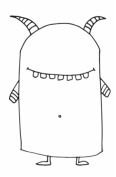 Halloween 2011
Halloween 2011 So when I watched the music video to find Madonna stumbling around at a party, appropriating other cultures, and teaming up with Nicki Minaj to make sure “these hoes know” that “Bitch I’m Madonna,” I was surprised and frankly, profoundly disappointed. I think of Madonna as a feminist icon, an image of sex-positive empowerment, a goddess. When I watch the video I do not witness a Madonna of fierce, sexy independence; instead, I watch someone on a power trip attempting to retain her legendary image at the expense of others, and at the expense of what has made her so fabulous in the first place.
In “Bitch I’m Madonna,” Madonna models the kind of sexual entitlement many of us are sickened by in predictably sexist music videos like “Blurred Lines.” Case in point: about two minutes into the video, Madonna walks up behind a guy seated at a bar, pulls him backward by the hair, pours a drink in his mouth, then pelvic thrusts him from behind. The guy is caught off guard, and the directors of the video don’t even make an attempt to make it look like this he enjoys any of what Madonna has just done to him. Though I appreciate the attempt to queer up this moment a bit with the woman who simultaneously pelvic thrusts Madonna from behind as Madonna thrusts into guy at bar, this moment falls very, very, short of being consensual. If a dude did this to a woman we as a public would be super angry. Being a woman, or being Madonna, does not make it ok.
Second case in point: about a minute later when Madonna grabs a woman at the top of the stairs, pushes her briskly against the wall, and kisses her. In this instance, the woman is smiling as Madonna grabs her, so it is unclear if what happens is consensual. But the message here is that it’s super sexy to act upon other people’s bodies as long as you own it, and have the social capital to do so. Sadly, I have witnessed women at parties who have done just this to my friends, especially when said friends have had a few drinks and can be caught off guard enough for the instigator to think they can get by with it. And they have. But let’s be clear: this is sexual assault. And being a woman does not make this kind of behavior acceptable, however famous you are.
We need to look past gender stereotypes enough to realize that the “Bitch I’m Madonna” kind of Madonna is one predicated on sexual entitlement and power at the expense of other people’s bodies. There are so many other ways Madonna could embrace power, queer sexuality, and sex positivity without treating men like animals and women like passive recipients of her prowess in this video. It seems like the “bitch” to which she is referring could be anyone she feels entitled to act upon, or anyone who might disagree with her behavior because, after all, she’s Madonna. But this is not the kind of Madonna, or the kind of “bad bitch,” I want to be.
If I am going to reclaim the word bitch at all, it is with abandon. It’s in a Lady Gaga “Bad Romance” kind of way—a reclamation that is fun and powerful and, most importantly, not at anyone else’s expense. The big difference here is that when Gaga tells us, “I’m a free bitch, baby,” and when I sing along and claim this for myself, it’s about choice. It’s about bucking the system, being labeled a bitch, and then co-opting that label in powerful reclamation. “Bitch I’m Madonna” takes on a controlling, dehumanizing kind of power, and there’s nothing sexy, liberating, or fabulous about that.
#iamnotmadonna


 RSS Feed
RSS Feed